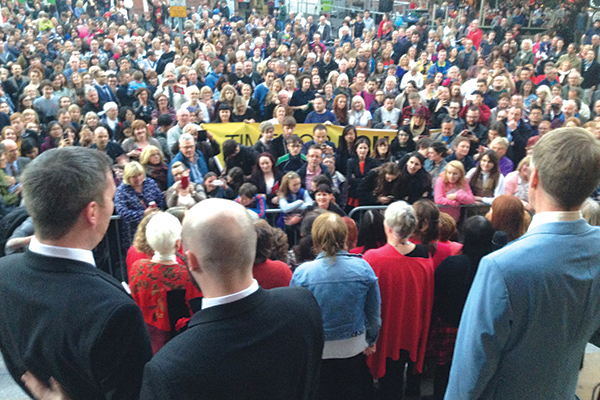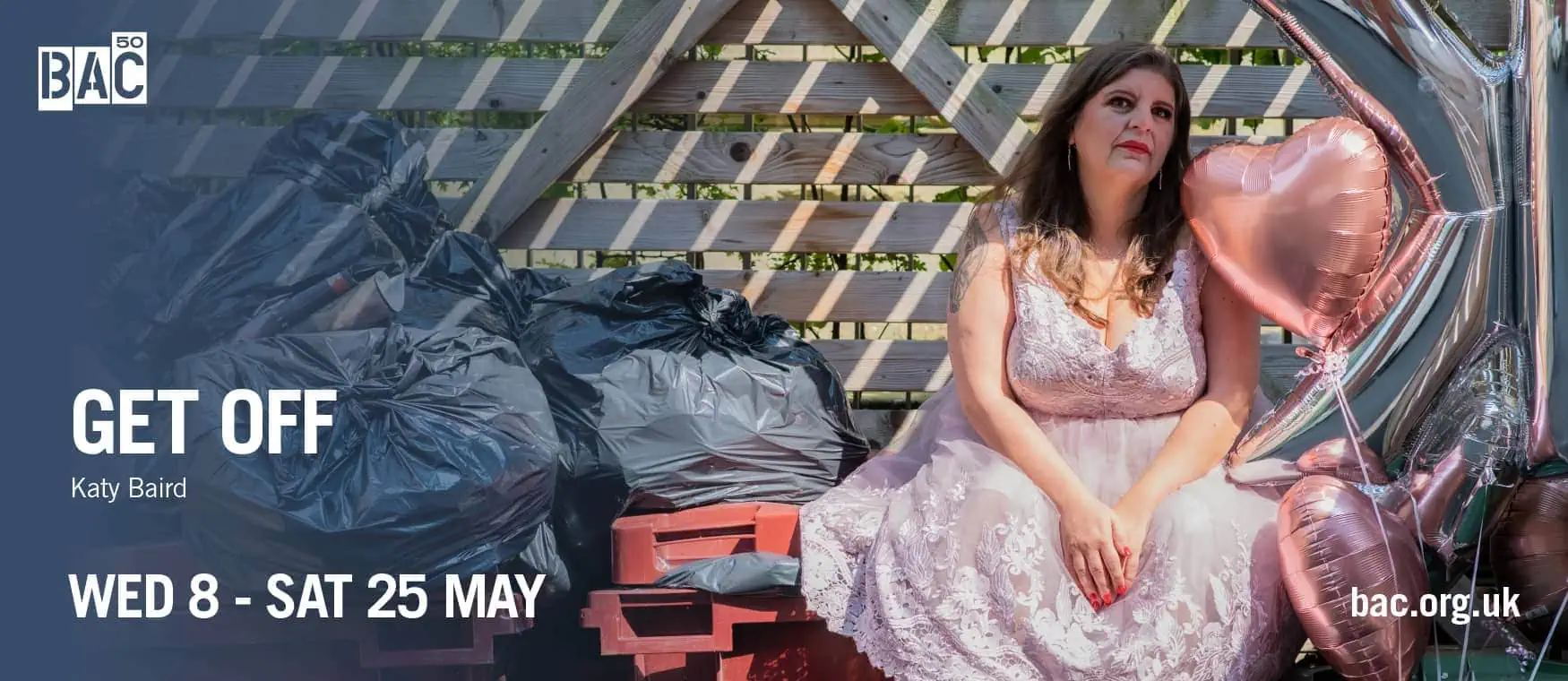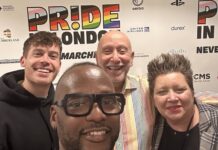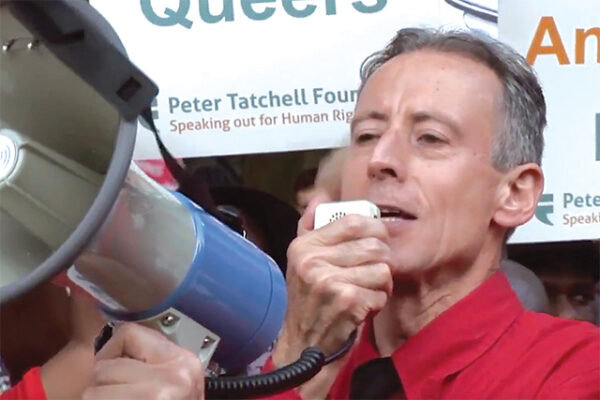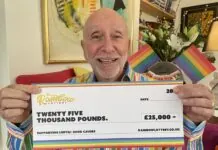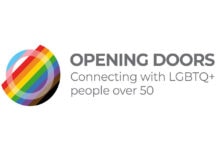While LGBT people in the UK enjoy some of the world’s most progressive laws, Northern Ireland continues to drag its heels. Chris Godfrey spoke to John O’Donnell, director of The Rainbow Project, about the fight for LGBT equality and the ongoing battle for same-sex marriage.

Northern Ireland’s most senior party in government, the DUP, oppose LGBT equality. None of the rights afforded to LGBT people here were brought in through Northern Ireland’s assembly. All the rights we have were either brought in through Westminster during direct rule or through court action. So our assembly has never passed any measure that would promote LGBT equality.
What are some of the discrepancies between LGBT rights in Northern Ireland and the rest of the UK?
Well the equality act didn’t come into effect. Equal marriage would be another. And in England, Scotland and Wales a change came in to allow religious based civil partnerships, but we don’t have that. So even if you had a faith group that wanted to do same sex civil partnerships, they’re not allowed to under the law. There’s a real freedom of religion issue there that faith groups are not allowed to engage in same sex partnerships. You’re not allowed to have any prayers and you’re not allowed to have any religious readings or hymns or anything like that.
There’s an issue with homophobic bullying in schools too, as there isn’t the same requirements of schools to record and report experiences of bullying, the motivation behind it and what response the school took. We’ve also been fighting for a sexual orientation strategy to be brought forward by our assembly. We hope it will address the issues LGBT people face and we’ve been promised it over the last two terms. But this term is about to come to an end in May next year and there have been no substantive moves forward.
The assembly recently voted in favour of same sex marriage, but it was blocked by the DUP. What happened there?
We got a majority vote, but Northern Ireland has a mechanism called the Petition of Concern. If 30 members submit a petition on any issue that’s been debated in the assembly then there has to be a cross community vote. The vote is based then on those who declare themselves nationalist and those who declare themselves unionist. And you have to get a majority from both, a majority overall doesn’t matter.
I think when it was created no one envisaged a time where one political party would be able to carry out the mechanism on it’s own. But the DUP now has 38 seats. They can sign the petition and as they account for more than 50% of all unionists they have, in effect, a veto on all issues in the assembly.

So the next assembly election is in May 2016. Are LGBT rights being discussed in the run up to this and do you think they have the potential to sway voters?
LGBT issues became very important in the last election and we’re hoping it’s going to be the same in the next election as well. These issues need considered debate, and elections provide a key opportunity for that. I’m not sure how much it will actually sway people but I think it will allow for informed debate on the issues, particularly of equal marriage.
Did the marriage referendum in the Republic of Ireland resonate with people in the North?
It did, people can’t help but feel moved by what has happened in the South. In the last vote in the assembly, all but one nationalist voted in support of equal marriage. I think that’s an indication as to the impact of the referendum. There was also the positive recognition that Irish society has had for being the first country in the world to legalise same-sex marriage by popular vote. I think all of that has definitely had an impact.
I’ve heard that same-sex couples from Northern Ireland are flying out to places like Scotland and getting married there. What are the legal implications of that?
When someone comes back the Westminster legislation calls for them to be recognised only as civil partners. So when they return to Northern Ireland they’re only recognised as being in a civil partnership and not being married. Which makes no sense – how can you be married in one part of the UK and not be married in others. In Scotland for example two 16-year-olds can go without parental consent and get married. You can’t do that anywhere else in the UK, but once they’re married, they’re married and they have to be recognised as married in other parts of the UK. How’s this any different?
How do you expect the same-sex marriage situation to develop in the near future?
It’s unlikely that it’s ever going to pass through the assembly in the next five years. My feeling is it’s going to be won through court action. There are two court cases going forward at the minute. The first one involves a couple from Belfast who got married in London. They’re seeking recognition from the court that they are in fact a married couple and should be recognised under the law as such.
The second case is actually from the first two couples to have civil partnerships here in Belfast, and they’re taking a right to marry case as well. I’m not sure what the outcome of those is going to be. It’s going to be a long process regardless of that outcome and there will probably be appeal after appeal. I think the issue will probably end up in the UK Supreme Court, if not the European Court of Human rights.
What’s the attitude of the general public towards equal marriage?
All polling is showing a majority of people in Northern Ireland are in support of the introduction of equal marriage. A recent poll even showed that a third of DUP voters support the introduction of equal marriage. So the politicians are very much on the wrong side of history and public opinion.
And attitudes towards LGBT people generally?
They’re definitely getting better and have been getting better with increased LGBT visibility. There has never been a better time to be LGBT in Northern Ireland. But there are still lots of issues there, and a lot of entrenched views of LGBT people, particularly from faith perspectives. Two weeks ago we had the deputy mayor of Derry say that he believed that LGBT people could be cured through prayer. And he’s still in his position. There was press coverage of this, but the press coverage here is usually quite stale. It gives both perspectives, rather than what I believe should happen which is rightly challenging a lie. Sexual orientation cannot be changed through prayer. That’s a recognised fact at this stage. So I think they definitely should be much more consistent on these issues. But the church still has a huge impact in society, as practically every child goes to either a catholic or protestant school.
You’ve been the director of the Rainbow Project for over five years now, tell me about some of the work you’ve been doing.
The rainbow project is Ireland’s largest LGBT organisation. There are two sides to what we do. One side is the direct service delivery work; so we provide safer sex packs, rapid HIV and syphilis testing and we do outreach work to high-risk sex environments like the gay saunas here in Belfast. We’ve got personal development programmes, youth groups, a programme supporting gay dads and those who want to become dads, anything you could think of we run.
The other side is our political lobbying advocacy work that we do. We do that across a range of areas, including education, the blood ban, gay families, sexual orientation strategy through our assembly, equal marriage – all the key LGBT issues.
And what’s on the agenda at the moment?
We need to increase awareness of LGBT people’s experiences of homophobic bullying, and of discrimination here in Northern Ireland. So we’re now running our Hearts and Minds campaign trying to bring the message of equality of the LGBT community to wider society.
We’ve had events like the march for civil marriage, which saw over 20,000 people out in the streets of Belfast campaigning for its introduction. We had event an called Big Fat Gay Wedding, where we had a local couple that wanted to get married having a fake wedding and highlighting the inequalities in the north.
We’ve also had guys who ran the referendum in the south doing talks about how the Yes Vote was won. We’re working closely with groups like Stonewall. We’re trying to learn as much as we can from other people’s marriage and civil rights based LGBT campaigns, so that we can run the best-informed campaign we can.
• For more information about the rainbow project please visit www.rainbow-project.org.

